Lolita (1962)
“You and I, we have lots of fun — don’t we, Lolita?”
|
Synopsis: |
|
Genres, Themes, Actors, and Directors:
Response to Peary’s Review: In his description of the film’s narrative, Peary notes that after Winters (giving “a hilarious performance”) is “run over (conveniently), Humbert whisk[s] Lolita out of camp” (Camp Climax!) “and [takes] her on a lengthy trip, from one motel to the next”, becoming increasingly “possessive of Lolita and [forbidding] his young lover to date once they settle down and she [goes] to school.” However, Lolita has been “going out on the sly with the openly perverse Quilty [Sellers], the director of the school play in which she had the lead”, and eventually she runs “off with Quilty, whom she considered a genius.” Peary notes that “to this naive girl Humbert [is] normal” — though “of course, Humbert isn’t normal at all — and much humor comes from his difficult attempts to appear normal/moral to the people he comes across (so they won’t suspect him of improprieties with Lolita) only to discover that those who judge him are as wacko as he is.” Peary writes that the “picture is at times screamingly funny,” that “the performances by Sellers… and Mason — talking smart yet acting like a five-year-old, displaying a sickly smile — are marvelous,” and that “pretty Sue Lyon, only [14]… but looking sexy and 17, gives a very self-assured, naughty (notice that smile, indicating she knows what Humbert’s up to) Carroll Baker-like portrayal.” Indeed, Lyon’s performance is at the heart of this film’s success — she’s preternaturally able to embody this challenging role and convince us that events are playing out exactly as seen on screen. (It’s too bad Lyon had such a tough time with Hollywood, since her performance here indicates she was a natural.) Mason, of course, is stellar as always, and Sellers shows the genius for characterization he would demonstrate to greatest effect in Dr. Strangelove just two years later. While not for all tastes, Kubrick’s adaptation of Nabakov’s novel remains a provocative, well-made classic, worthy of at least one-time viewing. Redeeming Qualities and Moments:
Must See? Categories
(Listed in 1001 Movies You Must See Before You Die) Links: |
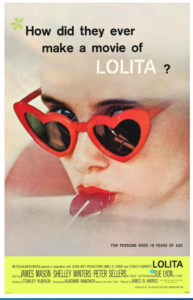
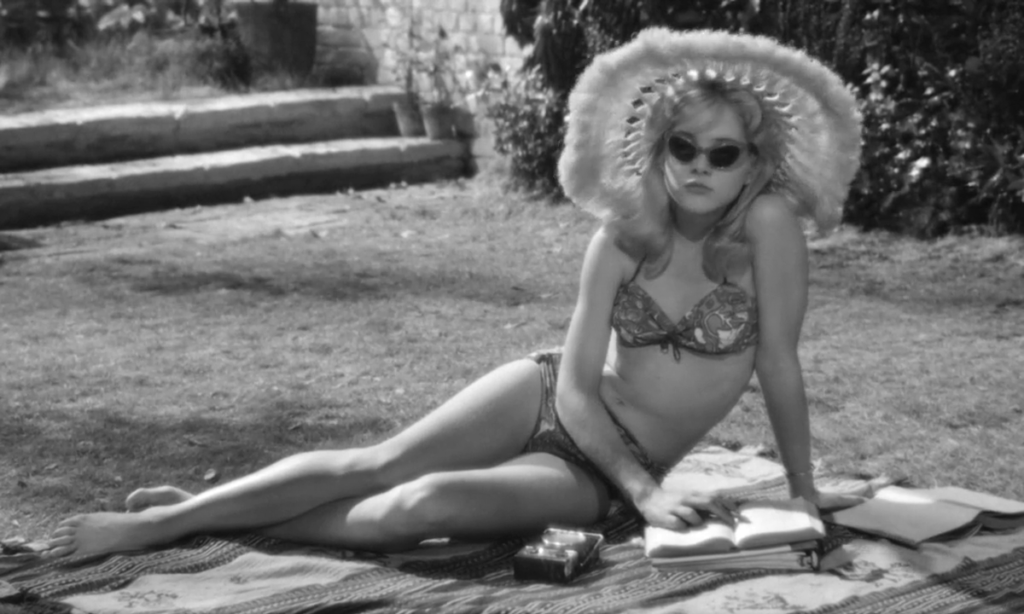
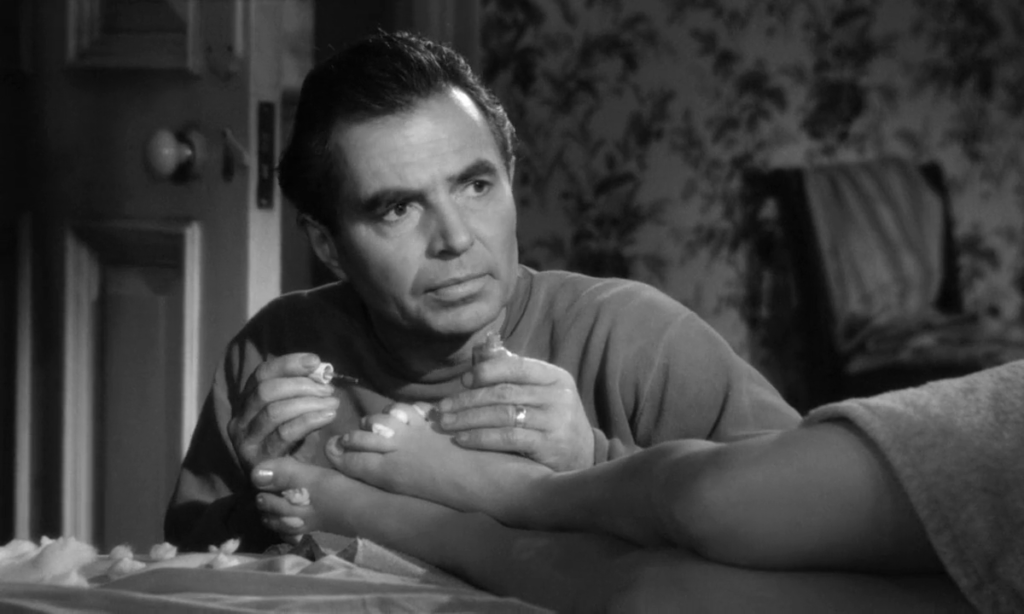
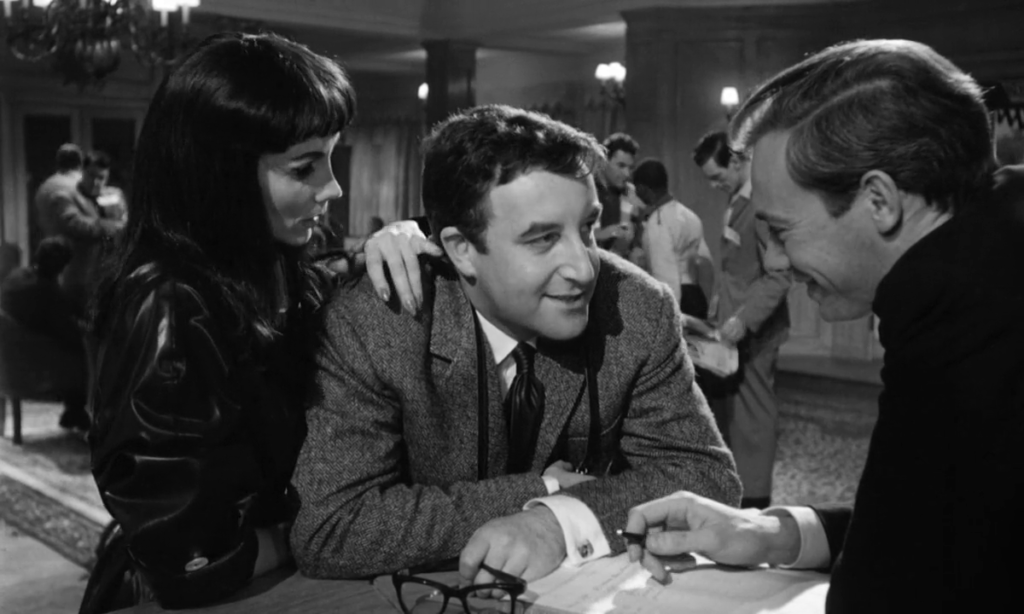
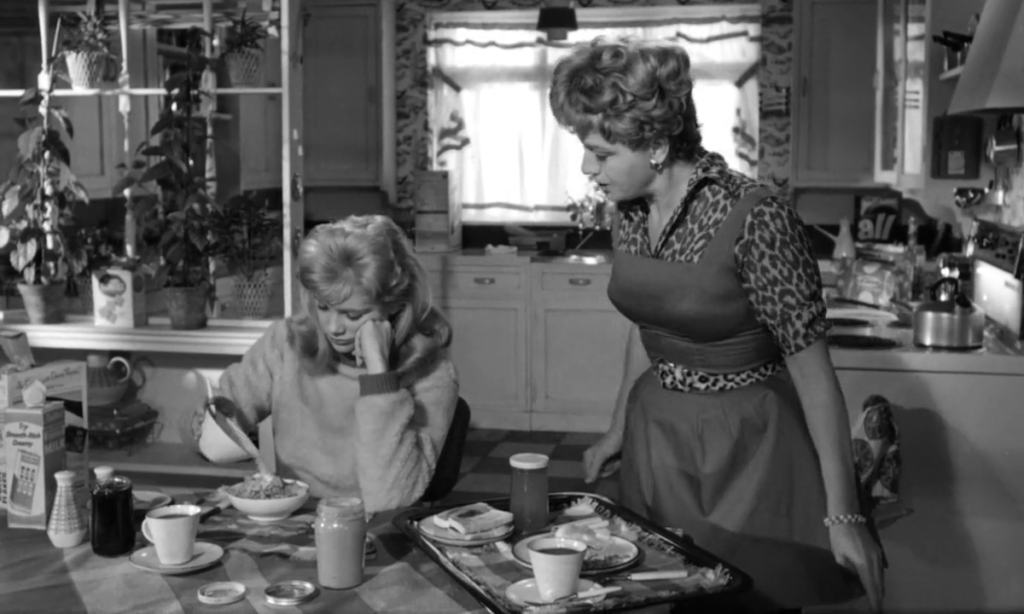
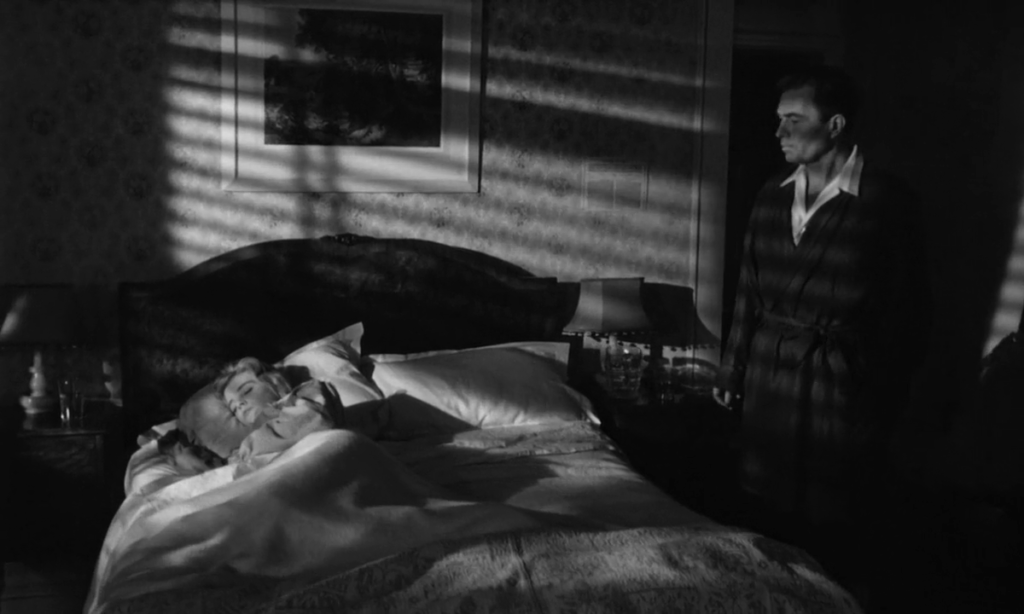
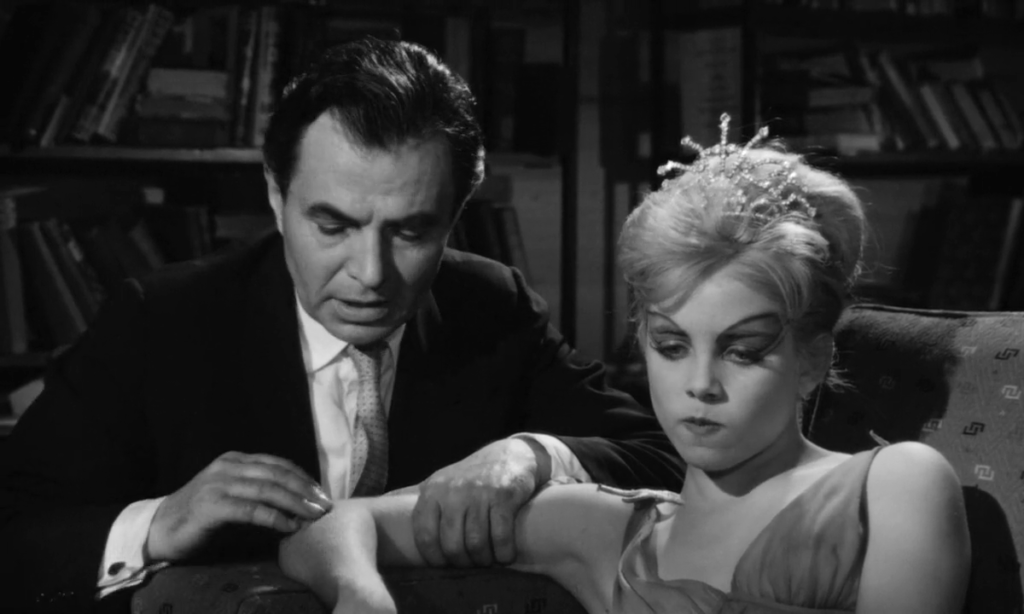
2 thoughts on “Lolita (1962)”
⭐️⭐️⭐️ out of ⭐️⭐️⭐️⭐️⭐️
A fine film but as with the book, I have never really been able to warm to the story. Too uncomfortable.
It’s a meticulous production and the performances couldn’t be bettered but not entirely convinced it has enough significance to be a must see.
A no-brainer must-see (one that benefits from repeat viewings), mainly for Kubrick’s direction and the main performances: Mason (!), Sellers, Winters and Lyon.
‘Lolita’ is among a handful of books that I’ve read twice (too many books, too little time for repeats). I read it when I was in my early 20s but don’t recall my initial reaction to it. I don’t think I completely *got* it. Maybe that’s why I read it again when I was in my late 30s… when it made more sense to me.
When it comes to film adaptations, ‘Lolita’ is a rare situation in which the liberties taken with the film (including the major liberties on the part of Sellers) don’t bother me in the least. The script was partially extracted from Nabokov’s own screenplay. Nabokov ultimately didn’t mind the interference much since he approved of the film when he saw it (though apparently he regretted taking the time it took to write a complete screenplay which was only partially used).
To me, in this case, the book and the film are two ‘different’ things which ultimately come off as two sides of the same coin. The film is a ‘vision’ of the book which manages to still be quite faithful to the spirit of the source material.
If it’s possible that I still prefer the book, the book doesn’t have what these performers bring to life. All of them seem to have been given a liberty that Kubrick would begin to take away from actors in the latter part of his career. But here the actors seem to have full-rein.
And I’m not sure I could picture any other actors in any of the same four roles. These are adventurous, rich deliveries with satisfying layers.
Of special note: the impeccable work by DP Oswald Morris.